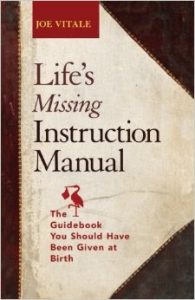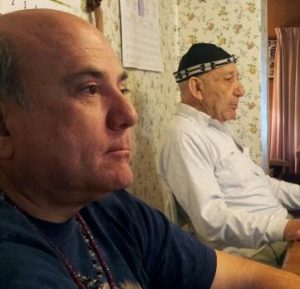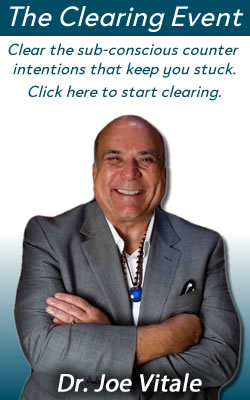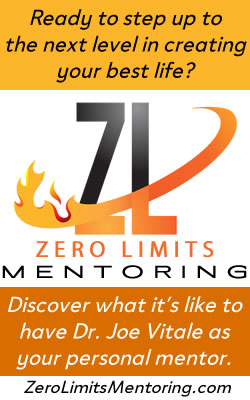Tag: paradigm
Extreme Ownership
The other day I went to a local Sprint phone store to get a newer modem.
As it turned out, a miracle happened.
Since I’ve been a Sprint customer for more than ten years, I have a collection of modems that are now prehistoric. I once took a few of them to the store and the clerks took pictures of them. They had never seen the old models. They were like dinosaurs to them.
So I picked up a new and improved whiz-bang latest greatest modem and drove off.
At home, I realized that the modem didn’t have a power cord.
Apparently I had left it at the store.
Dismayed, I called the store and asked for the clerk who waited on me.
“This is Angie,” she said, brightly.
“Angie, I think I left –”
“You left the power cord here!” she interrupted, remembering me. “I forgot to put it in the box.”
I started to complain about how this would require me leaving my home again and making another drive back to the city. I wasn’t looking forward to it, as the store isn’t right around the corner. I live in the Hill Country, not the city. Plus I keep a busy schedule.
But before I could say much of anything, Angie interrupted me.
“I’ll bring it to you,” she said.
I was stunned.
I was speechless.
I was quiet for a moment while I replayed what I heard in my mind, not believing it.
“You’ll bring it to me?” I asked. “I don’t live near you, you know.”
“It’s okay,” she said. “It’s my fault and I’d be glad to drive it to you right after I get off work today.”
She did, too.
She was all smiles as she handed me the cord at my house.
“Do you live out here someplace?” I asked.
“No, but don’t think anything of it,” she said. “It was my choice.”
Angie’s astonishing customer service and upbeat attitude got me thinking about a book one of my nephews told me about.
Extreme Ownership is a New York Times bestseller by Jocko Willink and Leif Babin.
It explains the leadership skills of the U.S. Navy Seals. It’s a well written book, with stories from the military as well as business, with principles they teach to get stellar results.
What interested me was the idea of full – or extreme – responsibility.
In my books, Zero Limits and AT Zero, I talk about total responsibility as a principle of ho’oponopono.
But Extreme Ownership strips away the spirituality and explains “extreme responsibility” as a practical tool in business and life.
I have no idea if Angie read Extreme Ownership, but her instant willingness to satisfy her customer reflected an attitude of total responsibility.
She didn’t pass the buck.
She didn’t tell me to drive back in.
She didn’t complain or blame or refrain.
She took responsibility.
She took extreme ownership.
And she has a friend, a fan, and a fanatic customer for life.
How does this apply to you?
Whenever you are about to complain that someone didn’t do something you asked for, turn it around and claim “extreme ownership” for the problem.
Look in the mirror and accept responsibility for your own lack of communicating how important the job was.
Look to yourself for your lack of leadership skills.
And then do something to correct it.
The other night I watched a brief biography of President John F. Kennedy.
When the Bay of Pigs was a disaster in 1961, and soldiers lost their lives, Kennedy went on national television and accepted total responsibility for the tragedy.
You may not be president, but you ask people to do things and they often don’t do them.
Are you going to blame them or find a way to resolve the issue?
Extreme ownership – whether taught by the U.S. Navy Seals or the practiciners of ho’oponopono – is about taking full responsibility and fixing the problem from within you.
Of course, at a certain point, you may decide to remove the people who aren’t doing what they promise, no matter how many times you explain it or in so many different ways.
That’s when you need to pull a Donald Trump and say, “You’re fired!”
But that decision only comes after exhausting your alternatives and taking extreme responsibility for the results – or lack of them.
As my new motto states, “It is what you accept.”
What are you accepting?
Ao Akua,
PS – Have you read my new book?
Answers for Preeya
Preeya, editor of Journals of the World, sent me a list of interesting questions. You can find them below, with my answers, or at her site. Enjoy!
– Knowing that every person has their own reality and that our thoughts
can shape our reality. When did this realisation come to you and how did
you manage to apply it your everyday life?
I first heard of the idea as a child in the 1960s, from reading books by Robert Collier. But I didn’t even begin to grasp the concept until I read the Seth books, by Jane Roberts, while broke and struggling as a young adult in the 1980s. And even then I didn’t fully integrate the ideas into my day to day life until decades later. Today I still need to remind myself that what I see is based on my perceptions, on my version of reality, and that everyone has their own version of reality. Reminding myself of this key concept makes life easier.
– What exactly inspires you?
I never know. Each day is different. Generally, books and ideas inspire me. But so do some people. I became a writer because of the authors who inspired me, like Jack London and Shirley Jackson. I became a musician because of singer-songwriters who inspired me, such as Neil Diamond and Rob Thomas. I became a strongman, doing feats of strength, after being inspired by people like Dennis Rogers and Iron Tamer David Whitley. I simply allow my passions to inspire me and follow them where they lead.
– Being involved in ‘The Secret’ documentary, a worldwide hit based on
the law of attraction, how did you get involved in it and what did it
mean to you to be part of such a production?
Rhonda Byrne, the producer of the movie, called me after reading my book, The Attractor Factor. She said she was making a movie and wanted me in it. I was flattered and agreed. I had no idea what I was getting into. The movie changed my life forever. I had a degree of fame as a marketer and copywriter before it, but being in the movie established me as a self-help teacher to the globe. It’s led to numerous opportunities and travels. I am forever grateful.
– The whole concept of the law of attraction is a difficult one to get
your head around for someone who is new to the topic. What message or
advice would you give to these people reading?
I’d say don’t worry about it. Over thinking the law of attraction is like over thinking the law of gravity. You simply need to know how to work with the laws. In the case of LOA, you have to remember that your unconscious beliefs are creating your reality. Learn ways to change your hidden operating beliefs and you’ll have a more fantastic life.
– You have spoken about being homeless and in poverty for many years,
and have now published a great book called ‘Attract Money Now’. But what
does money do for you?
Money does the same thing for me as it does for you: it enables you to live your dreams. I’ve written a new book, The Awakened Millionaire, which is a manifesto for people to live their life mission and to realize that money helps them fulfill their life mission. Money is simply a tool to fulfill dreams. Nothing more.
– When being introduced to the law of attraction, many of us only
believe it to be true once it has worked for us. Knowing its power, what
is the next goal you would like to achieve?
I have numerous goals. Creating a society of Awakened Millionaires is one. Ending homelessness is another. Writing new books that inspire and transform the planet is another.
Ao Akua,
Imaginotions: Part Five
The young woman awakened early, stirred by the flutter of a bird.
She went to her window and saw a bluejay sitting there.
“Good morning,” she said.
The bluejay seemed to wink.
She went to her mirror.
To her confusion, she saw nothing there.
She gasped.
“Why-Why…” she stammered, not sure what to say at her empty mirror.
“Have no fear,” a voice said from outside the window.
She spun around and looked at the window.
The bird was still there.
“Have no fear,” the bird repeated.
This was almost too much for the young woman.
No reflection in her mirror?
A bird that talks?
“Have no fear,” again said the bluejay.
“But I-I don’t understand!”
“Have no fear.”
“But I can’t see myself!” she exclaimed, getting panicky. “And you’re TALKING!”
“The nothingness you see in the mirror is the mirror of the real you,” said the bird.
“I am nothing?!”
“You are everything.”
“But I see nothing in the mirror!”
“Look again,” suggested the bird.
The young woman took a breath, calmed down a bit, and looked into her mirror.
Suddenly she realized all she saw in it was all she felt in her.
The mirror was her.
The mirror reflected all within and appeared without.
She slowly smiled.
“I think I understand,” she said, half to herself.
The bird smiled.
“But what about this business of a bluejay speaking?” she asked.
“Ah, but within the dream, all is possible.”
“All?”
“Whatever you can imagine, and can believe, can be achieved.”
“You sound like Napoleon Hill,” the woman said, smiling.
“I can read, too,” said the bird.
“All things really are possible,” mused the woman.
“And now you may awaken,” said the bird.
Thus the bluejay ended the lesson for the day.
Ao Akua,
PS – You know what this means.
My Dad for President
My father, now 91 years old, just released his second book, titled “What I Would Do As U.S. President.”
It’s a thought-provoking alternative to all the brain mush out there.
For example –
- * What would he feed leaders from other countries? (It’ll make you laugh, but a real President did this.)
- * What would he do with Air Force One? (You’ll never guess, but it actually makes sense.)
- * How much taxes would low income earners pay? (Anyone making less than $25k a year will love this.)
- * How often would the President travel to meetings? (Let’s just say the President won’t need luggage.)
This former U.S. Marine, prize fighter, railroad supervisor, father of four, widower, and storyteller, has some solid common sense ideas that will entertain and educate you.
Jimbo Berkey said (used here with his permission) –
“I just finished reading my copy of your father’s latest book and I am awed by his thoughts in chapter four – it should be mandatory reading for every man and woman over the age of 15. I’ve never encountered that much wisdom on one subject in one place before.”
Take one look at the cover and you’ll instantly know this one is unique.
Learn more at https://www.amazon.com/What-Would-Do-U-S-President/dp/1533431884/
Trump, Hillary, and all other politicians could learn something from reading this book — assuming (as my father might say) — they can all read.
Ao Akua,
PS – Fun videos to watch:
1. Watch my father receive his new book on June 4th, his 91st birthday (and see him instantly go into campaign mode): https://youtu.be/9KJP5ZQF0bA
2. Watch my father receive his first book last year, on his 90th birthday (and hear the 3 things he wants to do before he dies): https://www.youtube.com/watch?v=jMTuOZJ4V64
Note: Please share this message with friends and family.
Imaginotions: Part Four
“What do you see?”
He was in an eyeglass store, trying on new glasses.
“I see you, but not very clearly.”
“Good,” the clerk said, smiling, handing him another pair. “Try these on.”
He did.
“What do you see now?”
“I see you, but you are fuzzy.”
The clerk handed him another pair of glasses.
“And now?”
“And now you are tinted.”
Yet another pair of glasses were handed over.
“And now?”
“There you are! I can see clearly now!”
“Good,” said the clerk. “We have discovered that when you have the right pair of glasses to see through, the world is clear and in focus.”
“Like life?”
“Yes,” giggled the clerk. “Glasses are filters, just like the perceptions of your mind.”
“You are very wise, for an eyeglass store clerk.”
“Oh, thank you, but I had to see through the right glasses, too.”
“I’m glad I found the right pair to look through.”
“They were waiting for you all along.”
Ao Akua,
PS – You know what this means.










